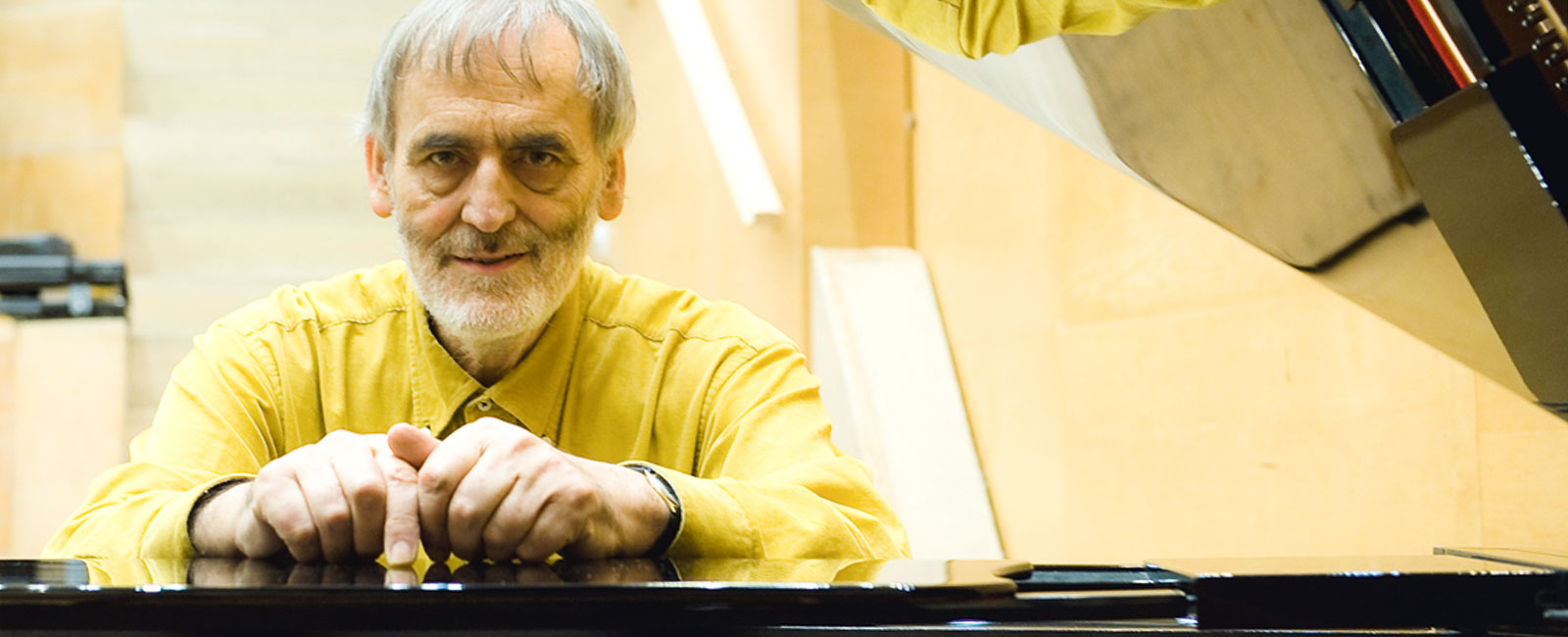NEWS
German composer Helmut Lachenmann wins the BBVA Foundation Frontiers of Knowledge Award in Contemporary Music for “enlarging the world of sounds”
The BBVA Foundation Frontiers of Knowledge Award in the Contemporary Music category goes in this edition to German composer Helmut Lachenmann. The jury deciding the award stressed the importance of his creative works, which “based on an intimate knowledge of the musical past, have enlarged the world of sounds during the last fifty years in a way unmatched by any other contemporary composer”.
15 February, 2011
Helmut Lachenmann “was and is the creator of new forms of musical expression that have profoundly influenced our understanding and way of listening to music throughout the world. He has led his audiences into unknown territories of musical experience”.
In the words of the citation, “his long and arduous path as a composer has been informed from the start by a critical stance regarding both music and the society in which and for which it was created.”
The award took Lachenmann completely by surprise. “I could never have imagined this” he remarked on receiving the news. “I can only say that this is a totally undeserved as well as unexpected honor that also brings with it certain obligations.” Obligations which he describes as “firstly, to go on writing music to the standards expected of me. And that is not always easy, because I’m now 75 years old and pursued from time to time by the specter of composer’s block. I hope to be able to respond to this prize with creativity”.
Lachenmann feels quite at ease in the company of other laureates in terrains distant from his own: “I belong to the Berlin Wissenschaftskolleg, which is a meeting place for legal scholars, sociologists, mathematicians, biologists… I am not a scientist, but we musicians too have a lot to study, starting with our own history. We also have to find a definition that encapsulates what art is, in contrast to what is commonly referred to as entertainment. Today’s politicians are apparently unable to tell the difference. When filling in the official visa form for entry to the United States, I am given the choice of placing an ‘x’ in the boxes marked business or entertainer. And I opt for the latter, although I do not feel by any means an entertainer. This problem arises because politicians have not taken the time to reflect on the meaning of Art with capital letters.”
The role of music in our time
He has no doubt about the role of music in our times: “An eternally new idea that allows us to leap beyond the boundaries of our own thought, and affords us a unique opportunity to explore other cultures and to fraternize with people who have grown up in other civilizations. For me music is an art that stands on its own. We need it because otherwise we would go mad. In this respect I believe that we composers are not entirely useless.”
The awardee in this latest edition believes firmly that “music reminds us that we have a creative spirit, constantly seeking out new horizons to conquer. Life is not about sticking with what we know, it’s about being able to reach beyond our everyday experience. For me the idea of music has to do with adventure; the adventure of the spirit, but also fantasy and conscience.”
Born in Stuttgart in 1935, he studied piano and composition at the Stuttgarter Musikhochschule where he would later hold the post of Professor of Composition, between 1981 and 1999.
From 1958 to 1960, he was a pupil of Luigi Nono in Venice, and in 1965 started work at the University of Ghent’s electronic music studio before centering his attention on purely instrumental music.
He has taught regularly on the Darmstadt summer courses and in 2008 was appointed Visiting Professor in the Music Department of Harvard University. During his time there, he also held the position of composer-in-residence at Oberlin College.
The name Helmut Friedrich Lachenmann is closely associated with “concrete instrumental music,” a step beyond the “musique concrète” developed by Pierre Schaeffer in 1948. In 2008, he received the Golden Lion at the Venice Biennale in honor of his life’s work: an output that runs from operas like Das Mädchen mit den Schwefelhölzern (The Little Matchgirl) through to orchestral works in diverse formats. Article writer, essayist and speaker, he is also author of the book Musik als existentielle Erfahrung.
The jury was chaired by Prof. Dr. Jürg Stenzl, Professor of Musicology at the University of Salzburg (Austria), with Spanish composer and conductor Cristóbal Halffter, 2009 Frontiers of Knowledge laureate in the Contemporary Music category, acting as secretary. Remaining members were Hugues Dufourt, composer and Emeritus Research Director at France’s Centre National de la Recherche Scientifique (CNRS); Ranko Markovic, Artistic Director of the Konservatorium Wien University (Austria); Siegfried Mauser, President at Munich University of Music and Performing Arts (Germany), and Dieter Torkewitz, composer and Professor of Music Theory at the University of Music and Performing Arts, Vienna (Austria)


